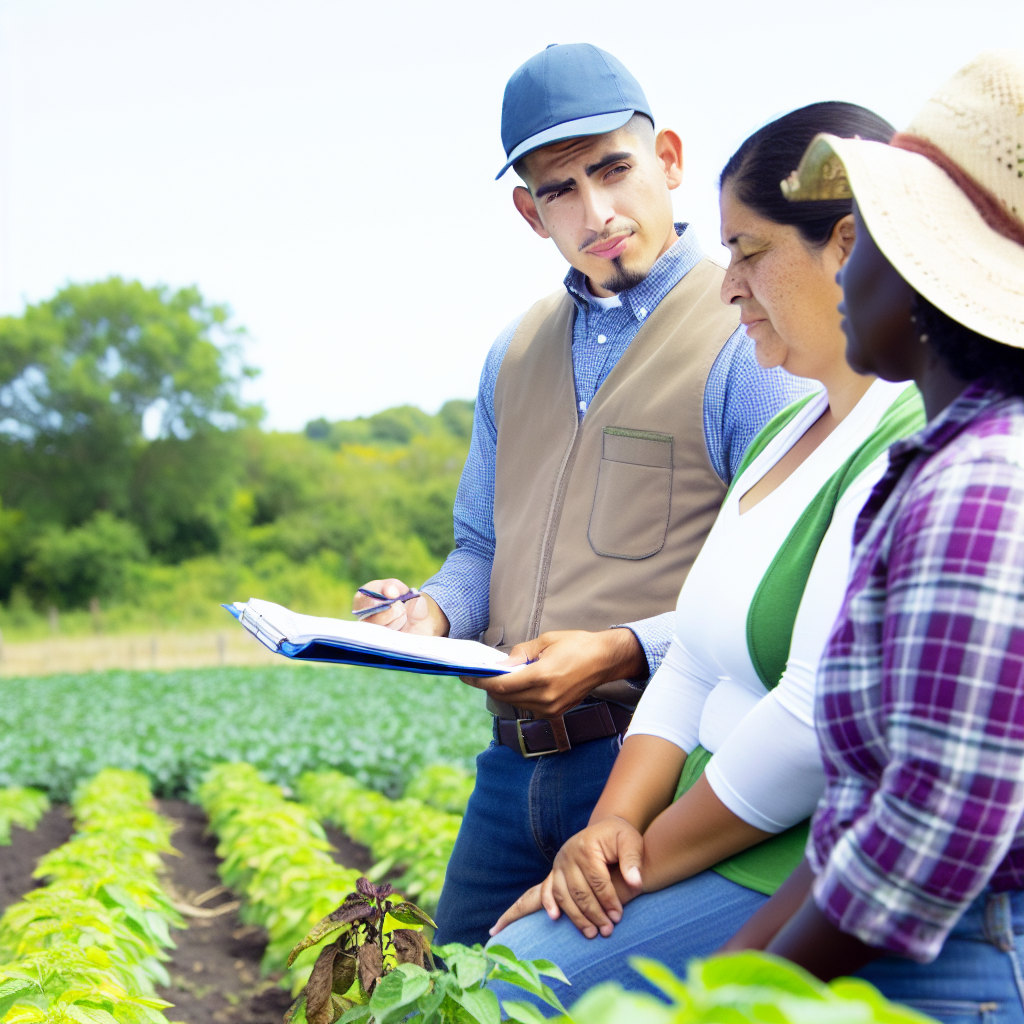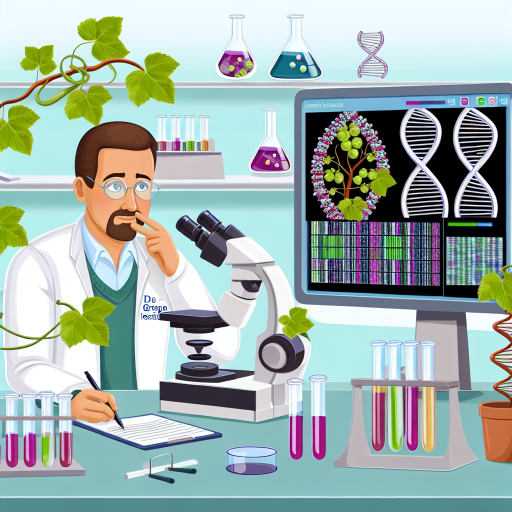Introduction:
Extension agents are professionals who play a crucial role in food systems by providing valuable information and resources to farmers and communities.
Their role is essential in ensuring food security and sustainability.
Extension agents act as intermediaries between agricultural research institutions and farmers.
They help to disseminate knowledge and technologies that improve agricultural practices and increase production.
By working closely with farmers, extension agents help to address challenges such as pest control, soil fertility, and crop diseases.
These challenges can impact food production and quality.
Extension agents also play a key role in educating farmers on sustainable practices.
These practices promote long-term food security while minimizing environmental impact.
Through training programs and workshops, extension agents empower farmers with the skills and knowledge needed to adapt to changing market conditions and climate challenges.
In addition to working directly with farmers, extension agents collaborate with government agencies, non-profit organizations, and other stakeholders.
They develop policies and programs that support a more resilient and inclusive food system.
Overall, extension agents are vital to the success of food systems.
They help to bridge the gap between research and practice.
This ensures that farmers have access to the latest information and innovations to improve their livelihoods.
Extension agents contribute to sustainable food production.
Educating Farmers
Extension agents play a crucial role in educating farmers by providing them with information on best agricultural practices.
They offer guidance on how to optimize crop yields and improve farm productivity through the adoption of modern methods.
Extension agents also train farmers on new technologies that can help them enhance their agricultural operations.
From utilizing precision agriculture tools to implementing sustainable farming methods, extension agents help farmers stay updated.
By organizing training sessions and demonstrations, extension agents empower farmers to make informed decisions.
Transform Your Career Today
Unlock a personalized career strategy that drives real results. Get tailored advice and a roadmap designed just for you.
Start NowSharing Best Practices
Extension agents act as a bridge between research institutions and farmers, sharing the latest best practices in agriculture.
They disseminate valuable information on crop rotation, soil health, pest management, and irrigation techniques.
Through workshops and field visits, extension agents help farmers understand the importance of following recommended practices.
By promoting efficient farming approaches, extension agents contribute to improving the overall sustainability of food systems.
They work closely with farmers to address specific challenges and tailor solutions to individual farming operations.
Empowering Farmers
Extension agents empower farmers to adopt sustainable farming methods that prioritize environmental conservation and resource management.
They encourage the use of organic farming practices, crop diversification, and integrated pest management to enhance soil health.
By promoting resilience to climate change, extension agents help farmers adapt to unpredictable weather patterns and mitigate risks.
They emphasize the importance of soil conservation practices to prevent erosion and maintain the long-term fertility of agricultural land.
By equipping farmers with the knowledge and skills needed to implement sustainable practices, extension agents play a key role in ensuring food security.
Collaboration with stakeholders in the food system:
Working with government agencies, NGOs, and research institutions
Extension agents play a crucial role in fostering collaborations with various stakeholders in the food system.
By working closely with government agencies, NGOs, and research institutions, extension agents can leverage their expertise and resources to support sustainable food production practices.
Collaborating with government agencies allows extension agents to stay informed about policies and regulations that impact the food system.
These partnerships enable extension agents to provide farmers with up-to-date information on compliance requirements and access to government programs that support food production.
NGOs are another key partner for extension agents in the food system.
Non-profit organizations often have a grassroots presence in communities and can provide valuable resources and support to farmers.
Extension agents can collaborate with NGOs to implement projects that promote sustainable agriculture practices and improve access to markets for small-scale producers.
Research institutions play a vital role in advancing agricultural knowledge and innovation.
By partnering with research institutions, extension agents can access cutting-edge research findings and technology that can enhance productivity and sustainability in the food system.
These collaborations can also lead to the development of new best practices and strategies for addressing challenges in food production.
Transform Your Career Today
Unlock a personalized career strategy that drives real results. Get tailored advice and a roadmap designed just for you.
Start NowFacilitating partnerships to improve access to markets and resources for farmers
Extension agents work to facilitate partnerships that improve access to markets and resources for farmers.
By connecting farmers with market opportunities, extension agents help them increase their income and expand their businesses.
Collaborating with local markets, supermarkets, and restaurants allows extension agents to create direct market channels for farmers.
These partnerships enable farmers to sell their produce at competitive prices and reach a wider customer base.
Extension agents can also help farmers access market information and training to improve their marketing strategies.
In addition to market access, extension agents work to connect farmers with essential resources such as seeds, fertilizers, and equipment.
By partnering with input suppliers and agricultural businesses, extension agents can negotiate discounts and bulk purchases for farmers, reducing their production costs.
These partnerships ensure that farmers have access to high-quality inputs that enhance their productivity and profitability.
Furthermore, extension agents collaborate with financial institutions to provide farmers with access to credit and insurance services.
By working with banks and microfinance institutions, extension agents help farmers secure loans for investment in their farms and protect their crops against risks such as pests and diseases.
These partnerships contribute to the financial stability and resilience of farmers in the face of uncertainties in the food system.
Collaboration with stakeholders in the food system is essential for extension agents to support sustainable food production, improve market access for farmers, and enhance the resilience of agricultural communities.
By working together with government agencies, NGOs, research institutions, markets, and financial institutions, extension agents can address complex challenges in the food system.
They enable farmers to thrive and succeed in an ever-changing agri-food landscape.
Uncover the Details: Effective Communication in Agricultural Marketing
Supporting Small-Scale Farmers
Extension agents play a crucial role in supporting small-scale farmers by offering various forms of assistance.
- Providing Guidance in Crop Production
- Extension agents work closely with farmers to provide recommendations on crop selection, planting techniques, and harvesting methods.
- Assisting with Pest Management
- Agents help farmers identify and manage pests that can threaten their crops, reducing the risk of crop loss.
- Offering Advice on Soil Conservation
- Agents educate farmers on sustainable farming practices that help preserve soil health and prevent erosion.
- Developing Business Skills
- Extension agents help small-scale farmers enhance their business acumen by providing training on financial management, marketing strategies, and business planning.
- Access to Financing
- Agents assist farmers in accessing financial resources such as loans, grants, and subsidies to invest in their farms and improve productivity.
Through these efforts, extension agents empower small-scale farmers to enhance their agricultural practices, increase their yields, and achieve financial sustainability.
Uncover the Details: Top Environmental Challenges in Agriculture Today
Addressing food insecurity and nutrition:
- Educating communities on the importance of diverse diets and food safety.
- Promoting the use of local produce and traditional foods.
Extension agents play a crucial role in addressing food insecurity and nutrition within communities.
By educating individuals on the importance of diverse diets and food safety, these agents empower them to make informed choices for themselves and their families.
Transform Your Career Today
Unlock a personalized career strategy that drives real results. Get tailored advice and a roadmap designed just for you.
Start NowThis education can range from teaching the benefits of incorporating a variety of fruits and vegetables into one’s diet to demonstrating proper food handling techniques to prevent illness.
Moreover, extension agents promote the use of local produce and traditional foods as a means of supporting small-scale farmers and preserving cultural culinary traditions.
By encouraging community members to source their food locally, agents help to strengthen the local economy and reduce the carbon footprint associated with transporting food over long distances.
In working towards food security and improved nutrition, extension agents also collaborate with local organizations and governments to implement programs that increase access to healthy food options.
This may involve advocating for policies that support farmers’ markets, community gardens, and urban agriculture initiatives.
By doing so, agents contribute to creating a more sustainable and equitable food system for all members of the community.
One of the key strategies employed by extension agents is to engage with community members through workshops, cooking demonstrations, and nutrition education programs.
By providing hands-on learning opportunities, agents empower individuals to take control of their health and well-being through better food choices.
This approach not only builds knowledge and skills but also fosters a sense of ownership and pride in one’s food choices.
In addition, extension agents work with schools, healthcare facilities, and other institutions to promote nutrition education and food security initiatives.
By partnering with these entities, agents can reach a wider audience and have a greater impact on shaping policies and practices that support healthy eating habits.
This collaborative approach leverages the strengths of different organizations to create a comprehensive strategy for improving food security and nutrition in the community.
Extension agents also play a vital role in advocating for policies that address food insecurity and promote nutrition.
By working with policymakers and community leaders, agents can shape legislation and initiatives that support access to healthy food options, especially for underserved populations.
This advocacy work is essential for creating lasting change and ensuring that all individuals have the opportunity to lead healthy and fulfilling lives.
Extension agents play a multifaceted role in addressing food insecurity and nutrition within communities.
Through education, promotion of local foods, collaboration with organizations, and advocacy for policy change, these agents work tirelessly to create a more equitable and sustainable food system for all.
Their efforts not only empower individuals to make healthier choices but also contribute to building stronger, more resilient communities where everyone has access to nutritious and culturally appropriate food options.
Explore Further: Livestock Manager: Salary and Job Outlook

Engaging with consumers and the public:
Extension agents play a crucial role in engaging with consumers and the public to raise awareness about food systems.
Transform Your Career Today
Unlock a personalized career strategy that drives real results. Get tailored advice and a roadmap designed just for you.
Start NowThey organize outreach programs and workshops on food systems to educate the community on sustainable practices.
Through these initiatives, extension agents help bridge the gap between producers and consumers.
By fostering a dialogue between stakeholders, they promote transparency and understanding in the food system.
Extension agents advocate for policies that support sustainable agriculture and local food production.
They work to influence decision-makers to prioritize environmentally friendly and socially responsible practices.
By engaging with the public, extension agents can gather feedback on food system challenges and opportunities.
They collaborate with community members to develop solutions that meet the needs of both producers and consumers.
Learn More: Agricultural Economics: Historical Perspectives and Evolution
Extension agents play a crucial role in the food system.
They evaluate the impact of extension programs.
Monitoring Farm Productivity and Income
Extension agents are responsible for monitoring the effectiveness of interventions.
They collect data to assess the impact of various programs.
This data helps evaluate the overall economic status of farmers.
Collecting Feedback from Farmers and Stakeholders
Another important role of extension agents is to gather feedback.
This feedback comes from farmers and stakeholders regarding the extension programs.
Such feedback is essential for evaluating success and identifying areas for improvement.
Analyzing Data and Trends
Extension agents analyze data collected from farmers and stakeholders.
This helps identify trends and patterns.
Analysis assists in understanding program effectiveness and making informed decisions.
Conducting Impact Assessments
Extension agents conduct impact assessments to evaluate program outcomes.
Transform Your Career Today
Unlock a personalized career strategy that drives real results. Get tailored advice and a roadmap designed just for you.
Start NowThey assess changes in farm productivity and income levels.
Overall well-being of farmers is considered to determine the success of interventions.
Implementing Monitoring and Evaluation Frameworks
Extension agents establish monitoring and evaluation frameworks.
These frameworks track the progress of extension programs.
They assist in measuring the impact of interventions and highlighting areas needing attention.
Reporting and Documentation
Extension agents are responsible for reporting evaluation results.
They document findings, including successes, challenges, and recommendations.
Collaborating with Research Institutions
Extension agents often collaborate with research institutions for in-depth studies.
Such collaboration generates evidence-based findings supporting decision-making.
Roles of Extension Agents in Food Systems
In today’s evolving food systems, extension agents play a crucial role in facilitating knowledge transfer and support to farmers.
Ensuring Sustainable Farming Practices
Extension agents educate farmers on sustainable techniques and practices.
These efforts improve crop yields and reduce environmental impact.
Supporting Small-Scale Farmers
Extension agents provide tailored guidance and resources.
This support enhances productivity and income generation for small-scale farmers.
Building Resilience in Food Systems
Extension agents help communities adapt to challenges such as climate change.
They promote resilient farming practices vital for sustainability.
Promoting Food Safety and Security
Extension agents educate farmers on best practices for food safety.
They contribute to ensuring a secure food supply for communities.
Utilizing Technology for Innovation
Extension agents introduce farmers to cutting-edge technologies.
These innovations optimize farming processes and increase efficiency.
Transform Your Career Today
Unlock a personalized career strategy that drives real results. Get tailored advice and a roadmap designed just for you.
Start NowAdvocating for Policy Change
Extension agents advocate for policies that support sustainable agriculture.
They aim for equitable food systems that benefit all stakeholders.
Collaborating with Stakeholders
Extension agents work closely with farmers, government agencies, and NGOs.
They foster collaboration and knowledge-sharing for better outcomes.
Supporting the Future of Food Systems
Extension agents are integral to the success of food systems.
They promote sustainability, resilience, and innovation across farming practices.
Investing in extension services is essential for building stronger food systems.
These efforts ensure a more equitable and sustainable future.




